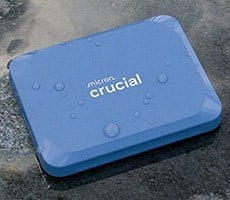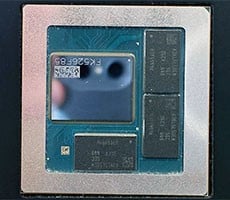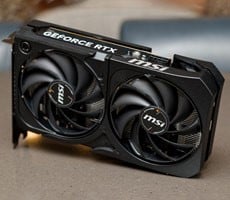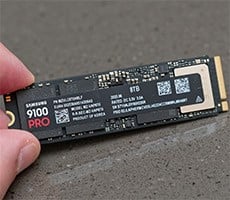OCZ RevoDrive X2 Review: Killer SSD Performance
As we noted in a previous SSD round-up article, though IOMeter is clearly thought of as a well-respected industry standard drive benchmark, we're not completely comfortable with it for testing SSDs. The fact of the matter is, though our actual results with IOMeter appear to scale properly, it is debatable whether or not certain access patterns, as they are presented to and measured on an SSD, actually provide a valid example of real-world performance for the average end user. That said, we do think IOMeter is a gauge for relative available bandwidth with a given storage solution.
|
In the following tables, we're showing two sets of access patterns; our Workstation pattern, with an 8K transfer size, 80% reads (20% writes) and 80% random (20% sequential) access and our Database access pattern of 4K transfers, 67% reads (34% writes) and 100% random access.

The first thing you'll note here is how flat the standard SATA SSD's performance was across test patterns and IO queue depth. The IO queue depth set in IOMeter essentially represents higher levels of workload requests of the same access patterns simultaneously. The Vertex LE SSD was saturated here as we turned up queue depth. However, the Fusion--io ioXtreme, OCZ IBIS and OCZ RevoDrives scaled up significantly at higher request levels. The RevoDrive X2 actually started to trail off above a queue depth of 144 in the database test, but scaled slightly higher still in the workstation test, as you'll note below. The ioXtreme SSD topped out at nearly 84,000 IOPS in the database test, while the IBIS drive peaked at nearly 50,000 IOPS. What was most impressive was how well the RevoDrive X2 performed. It offer significantly more throughput than the IBIS drive at every queue depth and even started to approach the ioXtreme's level of response time. Impressive to say the least.
In the workstation test the field was grouped tighter with the ioXtreme hitting a wall at 65K or so, while the OCZ RevoDrive X2 cleared 52K IOPS.

We would offer that the 12 - 144 queue depth ranges are probably more indicative of standard desktop and workstation performance. Also, note that the Fusion-io ioXtreme's cost per GB ratio is about $10 or so, while the RevoDrive X2 drive drops in at $2.57 per GB, which is on par or better than most standard SATA SSDs at similar capacities. At this point in our testing, we were really starting to get excited about RevoDrive X2.







